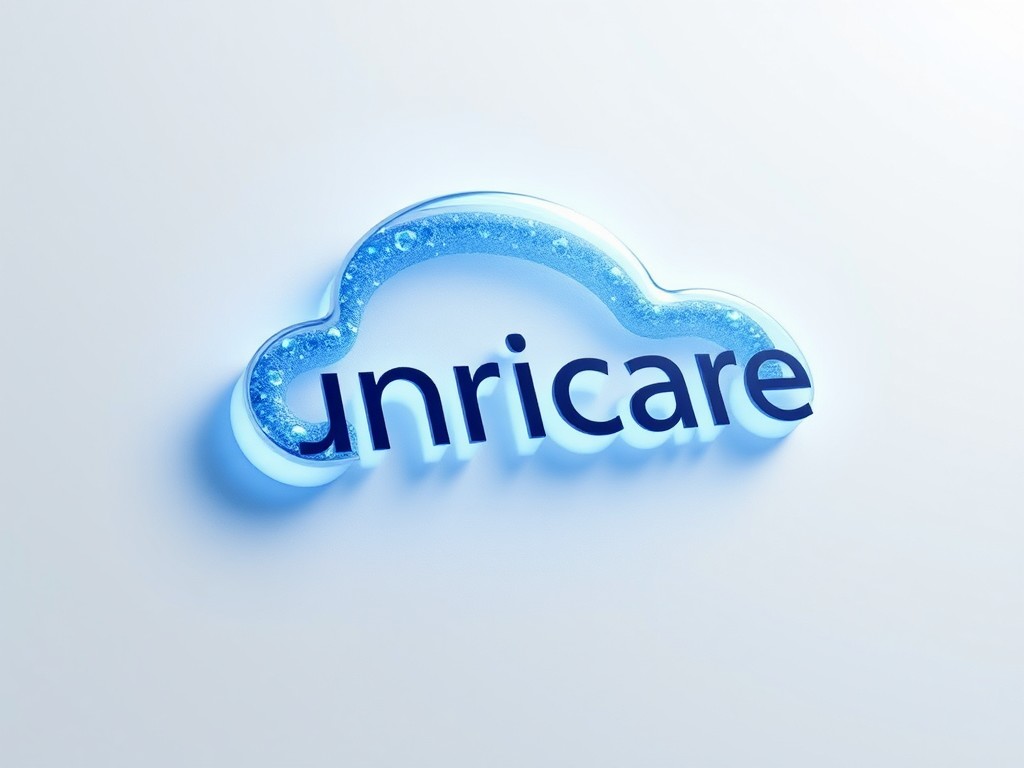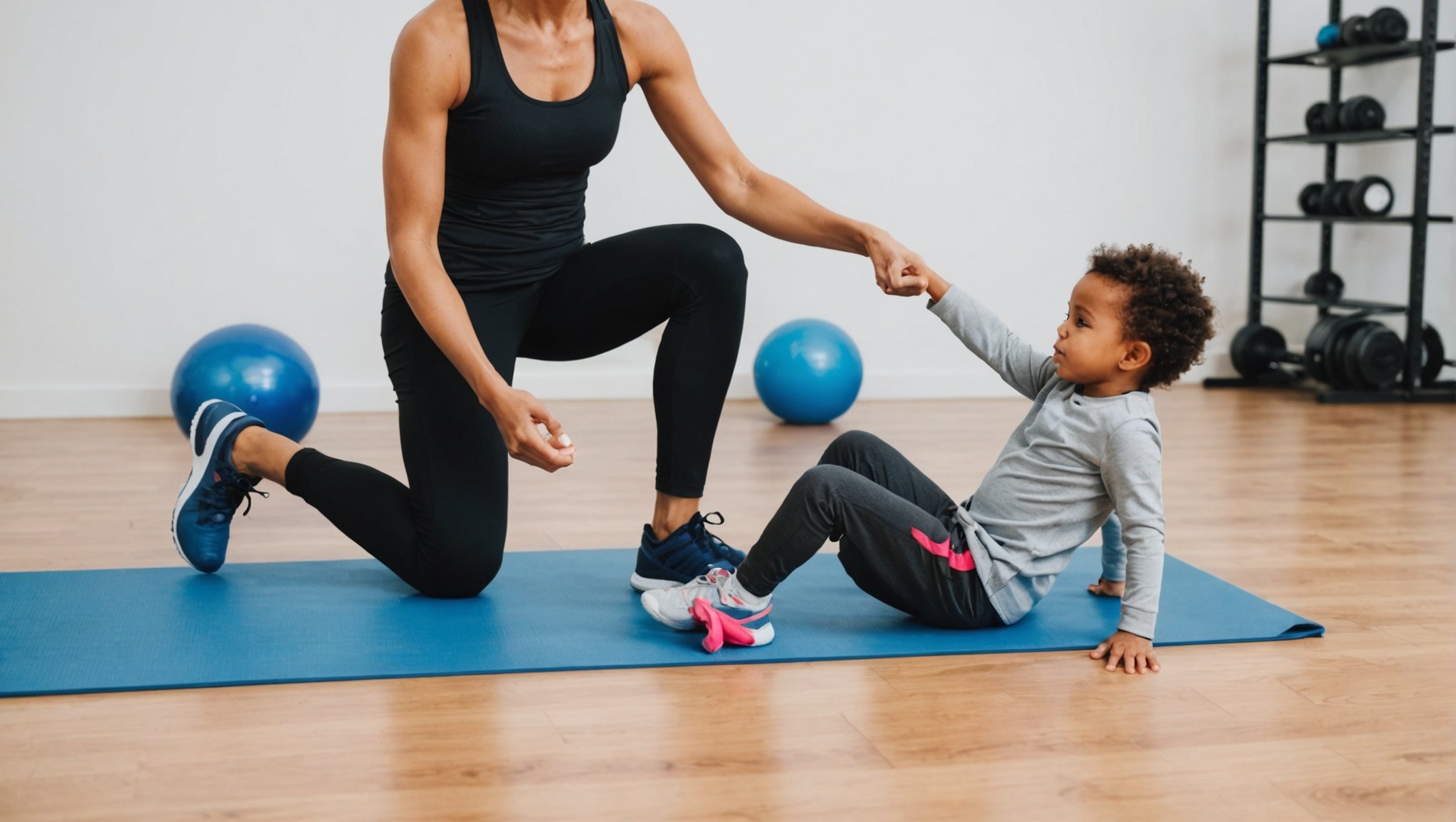Postnatal fitness is not just about losing weight; it’s a journey toward reclaiming strength, enhancing well-being, and embracing motherhood. Many new mothers face unique challenges, and understanding how to tailor a fitness routine can make all the difference. This guide highlights essential elements to create an effective and sustainable postnatal fitness plan that caters to your body’s needs. Explore practical strategies and tips that empower women to thrive in this transformative phase of life.
Understanding Postnatal Fitness
Navigating the journey of postnatal fitness can be both rewarding and challenging for new mothers. Postnatal fitness refers to the physical activities and exercises that are safe and beneficial for women after childbirth. It is crucial as it helps new mothers regain strength, improve mood, and boost overall well-being.
Also to discover : Discover the Best Sunscreens for Delicate Skin: Top Safe Choices for Sensitive Types!
After childbirth, a woman's body undergoes significant changes. These include hormonal shifts, weight gain, and muscle weakness, particularly in the abdominal and pelvic areas. Recognising these changes is essential for tailoring a postpartum exercise routine that addresses specific needs and promotes recovery.
Engaging in postpartum exercise offers numerous benefits. It aids in restoring muscle tone, enhancing cardiovascular health, and increasing energy levels. Furthermore, it can significantly improve mental health by reducing stress and alleviating symptoms of postpartum depression.
Topic to read : Explore 10 surprising advantages of lion's mane mushroom for health
For new mothers, it is important to start slowly and gradually increase the intensity of workouts. Prioritising low-impact activities like walking, gentle yoga, or swimming can provide a solid foundation for more rigorous exercises later. Consulting a healthcare professional before beginning any exercise program is advisable to ensure safety and effectiveness.
Incorporating postnatal fitness into daily routines can empower new mothers, helping them feel more confident and capable as they embrace the demands of motherhood.
Safety Considerations for Postnatal Exercise
When engaging in postpartum exercise, prioritising safety is paramount. New mothers should always consult healthcare providers before resuming any physical activity. This consultation ensures that the chosen exercises align with individual health conditions and recovery progress.
Recognising physical limitations after childbirth is crucial. The body undergoes numerous changes during pregnancy and delivery, making it essential to approach exercise with caution. Understanding these limitations allows new mothers to avoid injury and promote effective recovery. For instance, weakened abdominal muscles or diastasis recti may require specific exercises to ensure safety and effectiveness.
Exercise precautions are vital to prevent complications. New mothers should follow guidelines for safe exercise resumption, which typically include starting with low-impact activities and gradually increasing intensity. This phased approach helps the body adjust and strengthens muscles without undue strain.
- Consult healthcare providers: Ensures exercise is appropriate for individual recovery stages.
- Recognise limitations: Avoids injury and promotes healing.
- Follow guidelines: Start slow, increase intensity gradually.
By adhering to these precautions, new mothers can safely enjoy the benefits of postnatal fitness, enhancing their physical and mental well-being while embracing the joys of motherhood.
Essential Components of a Postnatal Fitness Routine
Creating an effective postnatal exercise routine involves understanding the key components that support recovery and enhance well-being. A focus on core strengthening exercises is vital. These exercises help rebuild abdominal strength, which is often compromised during pregnancy. Engaging in activities like pelvic tilts or modified planks can provide the necessary support to regain core stability.
Incorporating pelvic floor exercises is equally important. The pelvic floor muscles endure significant stress during childbirth, and strengthening them is crucial for preventing issues such as incontinence. Kegel exercises are a popular choice, as they target these muscles directly and can be performed discreetly throughout the day.
A gradual progression in both intensity and duration is essential for a successful postnatal exercise routine. Starting with low-impact activities and slowly increasing the challenge allows the body to adapt without risking injury. This approach not only enhances physical recovery but also boosts confidence in new mothers as they regain their strength and stamina.
By focusing on these components, new mothers can craft a balanced and effective workout plan that supports their unique postnatal needs, promoting overall health and well-being in the transition to motherhood.
Types of Beneficial Exercises for Recovery
Engaging in postpartum exercises is a crucial component of recovery workouts for new mothers. These exercises not only aid in physical recovery but also enhance overall well-being.
Low-Impact Cardiovascular Activities
Low-impact cardiovascular activities are ideal for new mothers. Walking is a simple yet effective way to boost cardiovascular health without putting undue stress on the body. Swimming is another excellent option, providing a full-body workout while being gentle on joints. Both activities can be adjusted in intensity to suit individual fitness levels and recovery stages.
Strength Training for New Mothers
Strength training is essential for rebuilding muscle tone and strength. Focus on exercises that target major muscle groups, such as squats, lunges, and light weightlifting. These exercises help restore muscle strength, particularly in areas weakened during pregnancy. It's important to start with lighter weights and gradually increase as strength improves.
Flexibility and Stretching Exercises
Flexibility and stretching exercises are beneficial for maintaining muscle elasticity and preventing stiffness. Incorporating yoga into a recovery workout routine can enhance flexibility and promote relaxation. Gentle stretching, focusing on areas like the back and legs, can alleviate tension and improve overall mobility.
By integrating these postpartum exercises into a recovery workout plan, new mothers can effectively support their physical recovery and enhance their well-being.
Nutritional Advice for Postnatal Wellness
Understanding the significance of postnatal nutrition is essential for new mothers as they navigate recovery. A balanced postpartum diet plays a critical role in replenishing nutrients and supporting overall health. Consuming a variety of nutrient-dense foods can aid in healing and provide the energy needed for daily activities.
Including foods rich in vitamins, minerals, and healthy fats is beneficial. Leafy greens, whole grains, lean proteins, and nuts are excellent choices. These foods not only support recovery but also enhance the nutritional quality of breast milk, benefiting both mother and baby.
Hydration is another key aspect of postpartum health. Drinking ample water is crucial, especially for breastfeeding mothers, as it helps maintain milk supply and supports bodily functions. Herbal teas and soups can also contribute to hydration while offering additional nutrients.
When planning a postpartum diet, it is important to focus on quality over quantity. Prioritising whole foods over processed options ensures a steady intake of essential nutrients. This approach supports recovery, boosts energy levels, and promotes overall well-being.
By emphasising balanced nutrition and adequate hydration, new mothers can effectively support their postnatal wellness and embrace the demands of motherhood with renewed vitality.
Modifications for Different Fitness Levels
Customised postnatal workouts are essential for accommodating various fitness levels among new mothers. Tailoring exercises ensures both safety and effectiveness, whether one is a beginner or more advanced in their fitness journey.
Adapting Exercises for Beginners Versus Advanced
Beginners should focus on gentle activities, gradually building strength and endurance. Exercises like modified planks or wall push-ups are ideal starting points. For advanced individuals, incorporating more challenging moves such as full planks or resistance training can provide a greater workout intensity. These modifications allow each mother to progress at her own pace, respecting her body's unique needs.
Modifications for Cesarean Versus Vaginal Delivery Recovery
Recovery from cesarean delivery often requires more caution. Gentle stretching and walking are recommended initially, avoiding exercises that strain the abdominal area. In contrast, those recovering from vaginal delivery might begin low-impact aerobic activities sooner. Customised postnatal workouts should consider these differences to promote healing.
Listening to one’s body is crucial during postnatal exercise. New mothers should pay attention to signals like pain or fatigue, adjusting workouts accordingly. This mindful approach ensures that fitness routines are beneficial and do not exacerbate any physical discomfort or injury. By prioritising these modifications, new mothers can enjoy a safe and effective postnatal fitness journey.
Mental and Emotional Well-being in Postnatal Fitness
Understanding the connection between physical activity and mental health is essential for new mothers. Engaging in regular exercise can significantly enhance emotional wellness by releasing endorphins, which help elevate mood and reduce stress. This natural boost is particularly beneficial in managing postpartum anxiety and depression.
Effective strategies for addressing postpartum anxiety and depression include integrating mindfulness practices into daily routines. Activities such as yoga or meditation can foster a sense of calm and improve mental clarity. Additionally, setting realistic fitness goals provides a sense of accomplishment and boosts self-esteem.
The importance of social support and community cannot be overstated. Joining postnatal fitness groups or classes offers a dual benefit: physical activity and emotional connection. Sharing experiences with others who understand the challenges of new motherhood can alleviate feelings of isolation and enhance emotional wellness.
Incorporating these elements into a postnatal fitness routine not only supports mental health postpartum but also empowers new mothers to navigate the emotional landscape of motherhood with resilience. By prioritising both physical and emotional well-being, mothers can foster a more balanced and fulfilling postnatal journey.
Creating a Balanced Postnatal Fitness Plan
Developing a comprehensive postnatal fitness plan involves setting achievable fitness goals that accommodate the unique needs and challenges faced by new mothers. Establishing realistic targets ensures that the fitness journey is both motivating and sustainable. For instance, aiming to incorporate short, consistent workouts rather than extensive sessions can foster a sense of accomplishment without overwhelming new mothers.
Workout scheduling is a critical component of a successful postnatal fitness plan. Balancing exercise with childcare responsibilities requires flexibility and adaptability. Integrating workouts into daily routines, such as during a child's nap time or incorporating the baby into activities like stroller walks, can help maintain consistency. This approach not only supports physical health but also allows mothers to engage in bonding activities with their child.
Rest and recovery are essential elements of any fitness routine, particularly in the postnatal period. Prioritising rest days and listening to the body's signals of fatigue or discomfort can prevent overexertion and promote healing. Ensuring adequate sleep and nutrition further enhances recovery and energy levels, enabling mothers to effectively manage both fitness and childcare responsibilities.
By focusing on these aspects, new mothers can create a balanced and effective postnatal fitness plan that supports their overall well-being.
The Role of Professional Guidance
Navigating the world of postnatal fitness can be daunting, but working with postnatal fitness professionals offers numerous benefits. These experts provide tailored expert advice, ensuring that exercise routines are safe and effective for each individual's recovery journey. They understand the unique physical and emotional challenges new mothers face, enabling them to offer personalised guidance that addresses specific needs.
Postnatal fitness professionals also connect new mothers with valuable resources. Many offer classes designed to accommodate varying fitness levels and recovery stages, ensuring that each participant can progress at a comfortable pace. Additionally, online programs have become increasingly popular, providing flexibility and accessibility for those unable to attend in-person sessions. These programs often include instructional videos, nutritional advice, and community forums, creating a comprehensive support system.
The importance of community support groups cannot be overstated. Engaging with others who share similar experiences fosters a sense of camaraderie and motivation. These groups often form around classes or online platforms, offering a safe space for sharing challenges and achievements. This network of support not only enhances the postnatal fitness experience but also contributes to improved mental and emotional well-being, empowering new mothers on their journey to recovery.
Resources and Further Reading
Exploring postnatal fitness resources can provide invaluable support and guidance for new mothers. Recommended books and articles offer insights into safe and effective postnatal exercise routines. Titles such as "The Postnatal Depletion Cure" by Dr. Oscar Serrallach and "Strong as a Mother" by Kate Rope provide comprehensive advice on physical recovery and emotional well-being. These resources are written by experts and offer practical tips tailored to the unique challenges faced by new mothers.
In addition to literature, online platforms and communities serve as excellent additional support. Websites like BabyCenter and What to Expect feature forums where mothers can share experiences and advice. These platforms often include expert articles and video tutorials on postnatal fitness, offering a wealth of information at your fingertips. Engaging with these communities can reduce feelings of isolation and provide reassurance through shared experiences.
For those seeking professional guidance, links to organisations such as the American College of Obstetricians and Gynecologists (ACOG) and Postnatal Exercise Specialists offer access to certified trainers and support networks. These organisations provide evidence-based recommendations and connect mothers with professionals who understand the intricacies of postnatal recovery. By utilising these resources, new mothers can confidently navigate their fitness journey.











